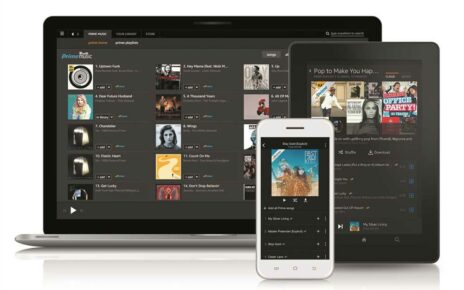Us Weekly has affiliate partnerships so we may receive compensation for some links to products and services.
The age-old traditions of masculinity are slowly falling by the wayside as society continues to redefine itself. What was once completely unacceptable behavior in a public setting may be considered essential for human function nowadays. For example, it is likely that your grandfather and his peers operated under a near expectation that no matter the circumstances, men would be stoic. Furthermore, any display of emotion equates to weakness. In recent years, thoughts along these lines have been tossed out the windows. Men from all walks of life are being encouraged to express their thoughts and feelings honestly. There may not be a one-size-fits-all option for accomplishing this, but many have found it beneficial to keep a personal journal. Author and entrepreneur Tim Ferris is one of these, “I don’t journal to ‘be productive.’ I don’t do it to find great ideas or to put down prose I can later publish. The pages aren’t intended for anyone but me. It’s the most cost-effective therapy I’ve ever found.”
Ferriss’ quote is only the tip of the iceberg when it comes to the benefits of journaling. Below you’ll just have a few more benefits of journaling. Should they pique your interest enough, we’ll also show you how to get started.
Personal Awareness
We’re going to let Lilian Chen, Co-Founder and COO from Bar None Games kick things off for us, “Those who journal, become far more aware of who they are. When we write out our thoughts, it forms new connections in our brains causing us to think deeper about ourselves.”
If someone told you that you have no idea who you are as a person, not only would you be shocked at how forward they are, but you would also be in disbelief. However, the reality is, no person has a complete understanding of themselves. Think of it like this, if you knew everything about who you are, would you need to try new things to know if you like them? Probably not.
Journaling is simply another form of trying something to know how you feel about it. For example, the idea of uprooting your life and moving cross country may seem enticing in your head. Though once you put the idea to paper, it might become one of the most overwhelming ideas you’ve ever come across. Obviously, you can never know for certain if a move like that is a good idea without making it. But, writing it out could begin to inform yourself of your true feelings. Chandler Rogers, CEO of Relay echoed this line of thinking, “Getting the most out of journaling will take years to master. But, just a day of it can make a world of difference, so long as you’re honest. Imagine it as a conversation with a stranger, only that stranger is you. You might be surprised at what pops up.”
Decision Making
The human brain has this way of tying itself up in a knot when presented with what appears to be a large decision. If you have ever been through something like this, you know that your brain has no shortage of options or possibilities that could play out based on the said decision. Christy Pyrz, Chief Marketing Officer of Paradigm Peptides believes journaling could help with this, “Trying to make your next big move in life will always be daunting, mostly because you’re never 100 percent certain it will work out. A journal may not be the magic eight ball you want, but intentionality with it could give some guidance.”
That’s right. Effective journaling can bring out incredibly helpful ideas you had no idea were inside you. The act of writing brings out an honest stream of consciousness no matter the circumstances. These are worth paying close attention to. But journaling can go deeper than this. Have you ever been told to listen to your gut? Well, these are more like survival instincts, and they try to keep us from harm. Often a big life decision can set off these instincts because change can mean giving up safety. If you find yourself in a similar boat, consider the words of David Culpepper, MD Clinical Director of LifeMD, “We should be more trusting of our gut instincts in general because they’re far more critical than we give them credit for. But we can’t do this unless we make sense of them. They tend to show up in our personal writings but if we’re not doing this, how can we know what we’re scared of or why we’re behaving in a certain way?”
Emotional Capabilities
Between the rollercoaster ride that has been Western society over the past few years, the general drain of the average workday, and personal obligations, there is no doubt you are familiar with being emotionally spent. Rightfully so. Simply being human is hard enough. Then you throw everything else on top of it and it’s a wonder many of us make it to the office every day. Thankfully, Susan Shaffer, President of Pneuma Nitric Oxide has a solution for this ongoing problem, “Whenever someone reaches their emotional breaking point, it usually is not accompanied by wise actions. This alone should inspire people to better manage their emotions and journaling seems like one of the best places to start.”
Being consistent in self-beneficial activities seems to be one of the hardest things for us. But as with any habit, good or bad, continued exposure to the activity will make it easier to return to it. Take the gym as an example. Regular visits to work out will train your body to handle the physical rigors better. Journaling does the same for emotions. Zachary Hamed, CEO of Clay put it best, “Expecting yourself to handle all the emotions of adulthood without knowing how to identify them is a recipe for disaster. It’s not the perfect solution for emotional management, but if you want to be a little more emotionally resilient, you might try journaling a little more frequently.”
Inspiration
Let’s look at two more benefits of journaling before moving on. The first is inspiration. It may seem a bit obvious to not have been mentioned at this point, but here we are. When you write out ideas, new ideas form. In a nutshell, by journaling, you’re putting yourself in a position to find new ideas. Patrick Schwarzenegger and Maria Shriver, Co-Founder and CEO of MOSH summarized this, “The best ideas in life are not random, spur of the moment, lightbulbs that appear over our heads. They are worked and thought through. But this can’t happen if you never make the effort to write things down.”
Self-Confidence
The final benefit to take note of builds off a benefit we discussed earlier – personal awareness. Adam Bém, Co-Founder and COO of Victoria VR pointed this out, “If life is a mystery, then everyone should start taking notes on the clues they observe about themselves. I’m not saying this will solve the mystery of who you are, but it will give you a better idea. Which, in my mind, is great. Because who wants to go through this world living someone else’s life?”
When people gain a deeper understanding of who they are and what they value, there is a sense of self-confidence as well. No longer will these people play guessing games with themselves regarding their behavior or decision-making. Now, they can step into whatever world or environment they so choose and feel like themselves on top of feeling at peace.
Before we delve into how you might start journaling, it is important to note that this list is far from complete. There are a seemingly endless number of benefits to making it part of your life. Theresia Le Battistini, CEO and Founder of Fashion League spoke to this, “In many ways, water and journaling are synonymous – there are more benefits than you can shake a stick at. So why bother making a list of them? Make them part of your life!”
Getting Started
Unlike numerous other forms or styles of writing, there is no correct way to keep a journal. If you want it to be a daily thing, so be it. If you only want to check in when you’re feeling stressed or want to process emotions away from people, no problem. You, the author of the journal, are solely responsible for supplying the contents of the journal. The most beautiful aspect to this is that there is no one who can say what you’re doing in your journal is right or wrong. Katy Carrigan, CEO of Goody talked about this, “I don’t know that traditional journaling is for everyone. I’m talking about ‘Dear diary’ type stuff. But I do know that everyone can express their thoughts in a written, or at least, non-verbal method. And I know that it helps for a variety of reasons so that leads me to believe everyone should try to keep their own type of journal.”
All that to say, anyone and everyone can and should journal. There is truly something in this activity for you and anyone you may know. From here, the next step to journaling should be apparent. If not, the words of writer and artist Hannah Hinchman should provide direction, “The best time to begin keeping a journal is whenever you decide to.”
Browse fashion, beauty and health products. Also, check out our gift guides.
This post is brought to you by Us Weekly’s Shop With Us team. The Shop With Us team aims to highlight products and services our readers might find interesting and useful, such as wedding-guest outfits, purses, plus-size swimsuits, women’s sneakers, bridal shapewear, and perfect gift ideas for everyone in your life. Product and service selection, however, is in no way intended to constitute an endorsement by either Us Weekly or of any celebrity mentioned in the post.
The Shop With Us team may receive products free of charge from manufacturers to test. In addition, Us Weekly receives compensation from the manufacturer of the products we write about when you click on a link and then purchase the product featured in an article. This does not drive our decision as to whether or not a product or service is featured or recommended. Shop With Us operates independently from advertising sales team. We welcome your feedback at [email protected]. Happy shopping!
For access to all our exclusive celebrity videos and interviews – Subscribe on YouTube!
Source: Read Full Article

